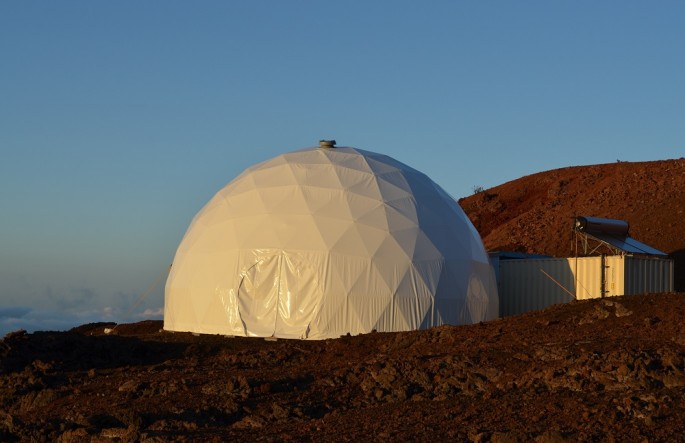Billionaire CEO Elon Musk talks about dropping thermonuclear weapons on Mars, where the Tesla Motors and SpaceX founder mused with idea on Wednesday night at the "Late Show With Stephen Colbert".
Musk is not declaring any cosmic war on the Red Planet however, he believes in the idea to terraform the planet by bombing both of its polar regions to begin the first human colonies where humans can propagate on Mars.
He adds that it's a fixer-upper of a planet, saying to Colbert that Mars can be eventually transformed into a planet similar to Earth.
NASA is officially planning to transform Mars into a habitable planet in the 2030s, sending the first humans to colonize the alien world, with the help of SpaceX developing "space taxis" or commercial space vehicles to shuttle humans to the International Space Station and beyond. However, in the event that Earth becomes uninhabitable by an environmental disaster or a huge meteor strike, is it necessary to nuke Mars to create a new home?
Mars is considered to a be a dusty planet, appearing to be devoid of any form of life. However, the planet possesses polar ice caps that contain water and carbon dioxide, similar to what we have on Earth.
Musk suggests that nuclear weapons can be utilized to vaporize the ice caps, releasing water and carbon dioxide into Martian atmosphere. When these materials are absorbed into the atmosphere, it will become thick enough where a greenhouse effect can develop, trapping heat and solar energy, producing infrared radiation.
With this infrared radiation gradually heating Mars, it will then emit more carbon dioxide that can produce a reaction that can lead to surface pressure that could produce liquid water on the surface, making it more habitable for vegetation that can produce oxygen in the long run.
According to Michael Shara from the astrophysics department of the American Museum of Natural History, turning Mars from a red planet to a green one is possible, but nuclear weapons are not the only option to melt the polar ice caps. The transportation of nuclear weapons can be very costly and it may not be a great public relations strategy.
Shara also adds that it would take decades of dropping thermonuclear weapons to create a greenhouse effect on Mars and after this, it might even take hundreds of years for humans to live and buy vacation homes on Mars. He concludes, it's a clever idea in principle but even if this can really work, nobody has figured out the physics in detail to prove that this could be effective.



























